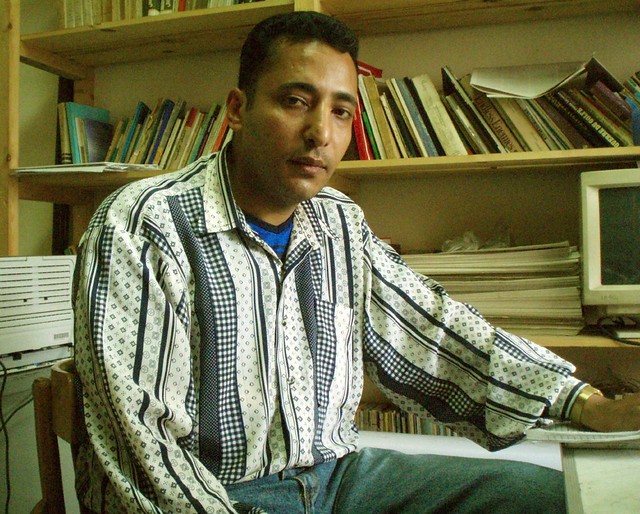Tag: women
Mansoura-España Garments Company workers sit-in
I travelled on Wednesday to the Nile Delta town of Talkha in Daqahliya province, with a group of journalist friends, to check out the sit-in by 284 workers at the Mansoura-España Garments Company.
I uploaded some of the pix I took to this Flickr set.
Women and the current labor strikes
Those who are interested in the empowerment of women should follow closely what is happening with the current wave of labor strikes. Women are playing a central role in the industrial action, especially in the textile sector. And as noted by Ghazl el-Mahalla December strike leaders, the militancy of the female workers outweighed that of their male colleagues.
I recently met Mohsen el-Sha’er in Giza, a trade unionist from the Mansoura-España Garments Company, whose workers have been staging an open-ended sit-in since April 19. Mohsen–who’s been working for 12 years, receiving a monthly salary of LE180 (US$32)–says the participation of women in the sit-in is central.
The Mansoura-España Company is in the Nile Delta province of Daqahliya. Around 284 workers are currently occupying their factory since 19 April, protesting its liquidation by the United Bank which controls most of its shares. The workers are demanding their unpaid social bonuses and May Day grants, as well as a 10-month salary compensation for every year they worked. (The owners are only offering two months.) This is the third industrial action they take since last September.
“Women comprise 75% of the total labor force in the company,” said Mohsen. “They were all with us in the strikes, and are taking part in the sit-in.”
I asked him whether this caused any sensitivities in a conservative province like Daqahliya, with the women leaving their family homes to sleep at the factory.
“Not at all,” he replied quickly. “We are all one family. Some of the women are married to colleagues in the company, so you’ll find the couples taking part together in the sit-in. As for those who are singles, or their husbands do not work at the company, their families are supportive too. The men know if their wives do not win, they will all end up in the street. The families bring food, which is shared communally among us.”

